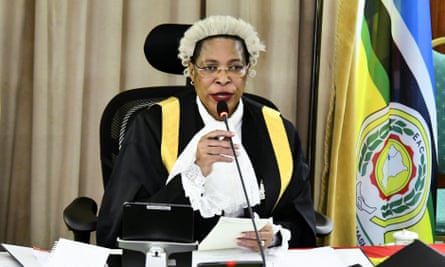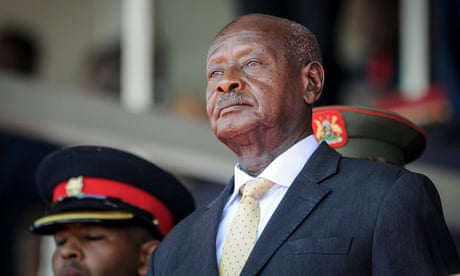For a half an hour on Wednesday morning, confusion and panic swept across this city of 10 million as news spread that North Korea had fired a rocket. Then, the next wave of messages hit: The South’s home ministry issued a notice saying the earlier alert was a “false alarm.”
Anxiety soon turned into anger and exasperation.
“They messed up big time,” said Lee Jae, an office worker in Seoul who woke up to the sirens.
South Koreans, who have grown inured to North Korea’s frequent provocations, were met with a disturbing taste of how their country might respond to a major military attack on Wednesday when their government caused confusion with its public alert system at a time of heightened tension in the region.
The confusion began after North Korea launched a rocket from the northwestern tip of the Korean Peninsula at 6:27 a.m. For days, the North had told the world that it was preparing to launch a rocket that would carry a homegrown military spy satellite into orbit, despite the action violating multiple United Nations Security Council resolutions.
Data the North had released on the rocket’s preprogrammed trajectory showed that it would fly south, over the sea between the Korean Peninsula and China, and over the waters east of the Philippines.
It is rare for a North Korean projectile to fly to the south. In 2016, when a North Korean rocket carrying a satellite flew on a southbound trajectory, South Korea issued an alert on Baekryeongdo, an island near the northwestern border with the North.
Two minutes after the liftoff on Wednesday, South Korea issued a similar alert on Baekryeongdo, but officials were investigating why the same alert was also issued to Seoul, even though the rocket flew hundreds of kilometers west of the city.
After issuing the alert on Baekryeongdo, the home ministry left it to regional governments to decide whether to follow suit, according the Seoul city government. Officials in Seoul said they decided to issue an alert in the city as a precaution, even if they had to retract it. The mayor of Seoul later issued a public apology.
For Chung Sung-hee, 62, the confusing response was infuriating. Ms. Chung said she was preparing breakfast at her home in central Seoul when she heard the phone alert, followed by a loudspeaker broadcast. When she opened the window and trained her ears, all she could make out was that it was “a real situation,” not a drill.
“They should’ve said what was happening, and where to go,” Ms. Chung said. “Who would evacuate with a message like that?” When she got the second alert saying it was a false alarm, Ms. Chung said she couldn’t help but curse the authorities.
“I blurted out, ‘These crazies — isn’t there one thing they can do right?’” she said. “The government should tell you, ‘this is the situation.’ If they out of nowhere just say ‘evacuate,’ what’s anyone to do?”
South Koreans harbor deep skepticism over their government’s ability to handle major disasters. The government of President Yoon Suk Yeol was widely accused of failing to prevent or respond quickly enough to the deadly crowd crush in Seoul that killed nearly 160 people in October.
Critics say that the response on Wednesday was symptomatic of an administration that has championed a tough stance against North Korea yet failed to assure the public of its safety amid the North’s growing nuclear threat.
“It’s right for the Yoon government to have a sense of crisis with North Korea,” said Ahn Byong-jin, a political scientist at Kyung Hee University in Seoul. “But there has been little training for the general public on how to live with it. The commotion we had this morning encapsulates how the government is failing to understand and respond to this new normal with North Korea.”
Min Yun-geun, a college student in Seoul, feared that false alarms, if repeated, might desensitize people to actual emergencies. “I’m realizing how we are actually not so prepared for war,” he said.
Mr. Yoon’s office condemned the North’s rocket launch as a “grave provocation,” calling it a long-range missile test disguised as a satellite launch.
North Korea confirmed that the launch had failed and that the projectile had tumbled into the sea west of the Korean Peninsula after its second-stage vehicle malfunctioned. The country vowed to schedule another launch as soon as possible. South Korea was collecting debris to glean clues about the North’s rocket technology.
By launching a rocket toward the south and attempting to place a military spy satellite into orbit, the North was escalating its nuclear threat, said Lee Byong-chul, a researcher on nuclear policy at the Institute for Far Eastern Studies at Kyungnam University in Seoul.
“North Korea has already shown that its missiles are powerful enough to fly the distances it wanted, but what it lacks is an ability to guide them to targets with precision,” Mr. Lee said. “Military spy satellites can help provide the North with that capability.”
Though some were frustrated by the South Korean government’s response to the launch, others said they would rather have officials err on the side of caution in such situations. “It’s better that they did it and get chewed out than not doing anything and getting chewed out,” said Lee Jae-hee, 45.
After he saw the alert, Mr. Lee said he saw a news report that it was about the space launch the North had warned it would conduct and fell back asleep. “If you’re hearing buildings blow up and things roaring, it’s probably too late to go anywhere anyway,” he said with a shrug.
South Korea regularly conducted civil defense drills during the Cold War, with sirens wailing and megaphones urging people to take shelter in subway stations, underground parking lots and basements of large buildings. Streets were vacated of traffic.
The country now has thousands of underground shelters for emergencies.
But those drills have become a distant memory for many across the country, particularly after Seoul began to engage in more diplomacy with North Korea under Mr. Yoon’s predecessor, Moon Jae-in. South Korea last conducted an air-raid drill in 2017.
As tensions in the region rise, Mr. Yoon’s government has been slow to reintroduce civil defense drills. On May 16, South Korea conducted its first nationwide civil defense exercise in six years, but it was limited to public servants and schoolchildren.
Jeung Yeon-cheon, 36, who lives on the 18th floor of an apartment building in Seoul, said he participated in the May training, though he thought that any risk of a North Korean attack felt remote. He quickly dismissed the alarm on Wednesday as a blip.
“It didn’t feel that serious,” he said.






















